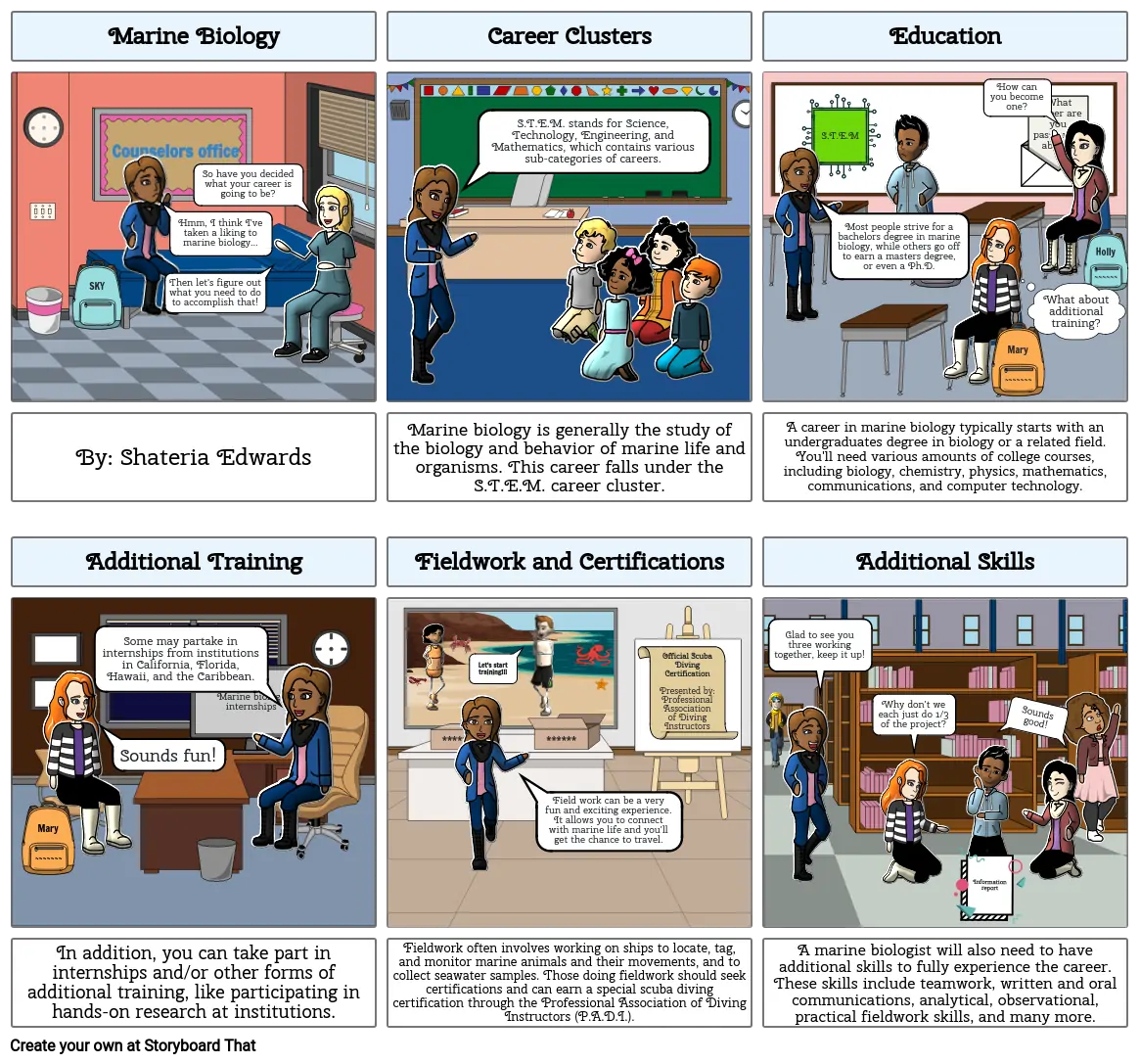Marine Biology

Storyboard Text
- Marine Biology
- SKY
- Counselors office
- Hmm, I think I've taken a liking to marine biology...
- Then let's figure out what you need to do to accomplish that!
- So have you decided what your career is going to be?
- Career Clusters
- S.T.E.M. stands for Science, Technology, Engineering, and Mathematics, which contains various sub-categories of careers.
- Education
- S.T.E.M
- Most people strive for a bachelors degree in marine biology, while others go off to earn a masters degree, or even a Ph.D.
- ~~~~~~ Jacob
- How can you become one?
- ~~~~~~~ Mary
- What about additional training?
- What career are you passionate about?
- ~~~~~~ Holly
- By: Shateria Edwards
- Additional Training
- Some may partake in internships from institutions in California, Florida, Hawaii, and the Caribbean.
- Marine biology internships
- Marine biology is generally the study of the biology and behavior of marine life and organisms. This career falls under the S.T.E.M. career cluster.
- Fieldwork and Certifications
- Official Scuba Diving CertificationPresented by: Professional Association of Diving Instructors
- A career in marine biology typically starts with an undergraduates degree in biology or a related field. You'll need various amounts of college courses, including biology, chemistry, physics, mathematics, communications, and computer technology.
- Additional Skills
- Glad to see you three working together, keep it up!
- In addition, you can take part in internships and/or other forms of additional training, like participating in hands-on research at institutions.
- ~~~~~~~ Mary
- Sounds fun!
- Fieldwork often involves working on ships to locate, tag, and monitor marine animals and their movements, and to collect seawater samples. Those doing fieldwork should seek certifications and can earn a special scuba diving certification through the Professional Association of Diving Instructors (P.A.D.I.).
- ******
- Let's start training!!!
- Field work can be a very fun and exciting experience. It allows you to connect with marine life and you'll get the chance to travel.
- ******
- A marine biologist will also need to have additional skills to fully experience the career. These skills include teamwork, written and oral communications, analytical, observational, practical fieldwork skills, and many more.
- Why don't we each just do 1/3 of the project?
- Information report
- Sounds good!
Over 30 Million Storyboards Created
No Downloads, No Credit Card, and No Login Needed to Try!
